Insha Allah” means “as God wills,” “if God wills,” and “may it be so.
It’s an interjection that Muslims often use when talking about the future.
The English spelling is “inshallah”, but the original Arabic spelling is إن شاء الله (‘in šā’ allāh).
The Arabic is difficult to read if we are not familiar with it.
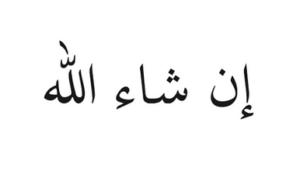
Some people may think that “Allah” is a proper name of God, but it is a common noun in Arabic, meaning “God.
The word “Allah” means the same thing as “Yahweh” in Judaism and “God the Father” in Christianity.
However, there is some disagreement on this site as to the position of Yahweh, and those interested should refer to the following article.
*Reference article: Yahweh and Elohim are Two Different Gods – Why It is Better to Distinguish between the Ethnic Gods and the Supreme God
The problem with this “inshallah” is that it is easy to make promises to Muslims that can be easily broken.
For example, let’s say you suggest, “Let’s meet here tomorrow at 8:00 a.m.” and the Muslim responds, “Okey-dokey, inshallah.
So, when you go to the meeting place at 8:00 the next morning, the Muslim may not show up in spectacular fashion.
When we question him later, he replies, “I added the word ‘inshallah,’ and it is ‘God’s will’ whether or not I can make it to the appointed time.
However, if such promises can be made, well, if they are just for fun, they are still good, but if they are for business, they become a big problem.
That is why one of the reasons why the Islamic world (excluding oil money) has not been able to develop its economy to date is this inshallah problem.
So, in this issue, I would like to discuss how we should think about this inshallah, and even go into the issue of “predestination and free will” that underlies the inshallah, and try to provide one answer in the Neo Buddhism sense.
Where is the ground for “inshallah”?
Qur’anic sources
The inshallah is grounded in the following statements of the Qur’an.
Except [when adding], “If Allah wills.” And remember your Lord when you forget [it] and say, “Perhaps my Lord will guide me to what is nearer than this to right conduct.” (Qur’an, 18:23-24)
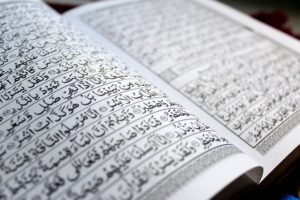
Belief in predestination”, the Islamic creed
This is true as a source of authority, but more than “because it says so in one place in the Qur’an,” inshallah touches on a fundamental aspect of Islamic thought.
It is called “Belief in predestination”.
Muslims have six articles of faith and five practices. These are called the “Six articles of belief(Aqidah) and Five Practices(Five Pillars of Islam).
*In the case of the Sunnah
In a nutshell, here is a summary
Six articles of belief
- Belief in God and tawhid (monotheism)
- Belief in the angels
- Belief in the Islamic holy books[13]
- Belief in the prophets and messengers
- Belief in the Last Judgment and Resurrection
- Belief in predestination
Five Pillars of Islam
- Shahada (Declaration of Faith)
- Salah (Prayer)
- Zakat (Almsgiving)
- Sawm (Fasting)
- Hajj (Pilgrimage)
Again, “Belief in predestination” in the Six articles of belief is relevant.
The word “predestination” means that “the only Almighty God (Allah) knows and plans everything, so every event depends on Allah’s will.
In short, the idea is that human free will is an illusion, and that everything is done according to God’s will.
The thesis that “predestination” and “human free will” are contradictory
Even in the Qur’an, the position of “free will” is difficult to define.
It is because of the above-mentioned article of faith of “predestination” that the logic of “inshallah” is that even if a promise is not kept, the failure to keep it is due to Allah’s will itself. Therefore, the logic goes that man is not responsible.
If everything is the will of Allah, then there is no room for human free will to intervene in the first place. The absence of free will means that there is no responsibility.
So, then, Islam does not recognize human free will, but in another context, there are Qur’anic statements that would be strange if they did not recognize “free will”.
For example, the Qur’anic description of the Last Judgment, which is common to Semitic monotheism, is as follows
On that Day human beings shall be like scattered moths, and the mountains shall be like fluffs of carded wool in varying colours. Then he whose scales weigh heavier shall have a blissful life; but he whose scales weigh lighter, his shall be the deep pit for a dwelling. And what do you know what that is? A Blazing Fire! (Qur’an 101:4-11)
Simply put, those who have done good deeds will go to paradise, and those who have done evil deeds will go to hell. This is a very easy logic to understand from a religious point of view.
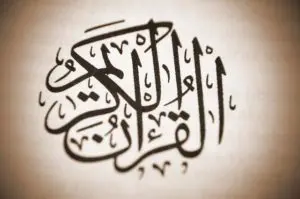
However, if the destination of the hereafter is determined by human action, then it would seem that human free will is recognized in the Qur’an. At least, that is how it can be interpreted.
Because where there is free will, there is responsibility.
- Good deed→Paradise
- Bad deed→Hell
However, what if Allah’s ” predestination” is so thorough that He even predestines which path each individual will choose?
Let us consider this point in the next section.
Inshallah’s problem is the same as Calvinism’s “predestination”
If you have followed the “predestination” concept to this point, you may have heard this story somewhere before.
Yes, this is precisely the Christian Protestant (Calvinist) ” predestination” or “double predestination” view. This and the nature of the Inshallah problem are in fact exactly the same.
*Calvinism takes the position of ” double predestination,” which states that those who are chosen for salvation and those who are not are predetermined by God.
At the root of Calvinism’s theory of predestination is the omnipotence of God.
However, the fact that God’s judgment can be changed by man’s free will and actions based on it means, from another angle, that “man can influence God,” and this puts God’s omnipotence and absolute nature at odds.
Hence, the logic of the predestination theory is that salvation does not depend on man’s free will and actions based on that free will, and that salvation is by God’s free choice.
Again, the structure of this thought is exactly the same as the problem of inshaAllah, which is rooted in the article of faith, “predestination.
There is clearly a thesis here that God’s absoluteness and human free will are contradictory.
Fate” and “free will” are contradictory but compatible in a higher level concept
As I have mentioned, as long as there is a contradiction between ” predestination” and “free will,” or as long as free will converges with predestination, the logic of avoiding human self-responsibility will be established.
Even Islamic theology (Tawhid) and Christian theology have not been able to provide a clear answer to this question.
In fact, Neo-Buddhism has provided an answer to this question prior to this article.
The answer is the logic that predestination and free will can be compatible.
For more information, please refer to the following article.
*Reference article: Predestination and Free Will Can Coexist – Absolute God, Which Also Embraces the Law of Causality
Theory of the emergence of free will
If you read the above article, you will understand that “predestination” derived from God’s absoluteness and human “free will” are not contradictory and can be reconciled, which we will also describe in this article.
The point, we believe, is to find out what free will is in the first place, and the point from which it emerges.
Allah (God) is the Whole
The first step is to address the thesis that “Allah (God) is the Whole.
By the way, “Allah” is not a deity unique to Islam, but an omnipresent/universal deity. It is not a proper noun God, but a common noun God. It is the capitalized “God” in English.
Hence, it is (at least) identical to the Judeo-Christian God, the God of Semitic monotheism. He is the God referred to in the Bible as Yahweh, Elohim, Heavenly Father.
In fact, even in the Arabic Christian Bible, God is referred to as “Allah.
However, some may argue that since Allah is a “transcendent God”, He is not an “omnipresent God”.
In fact, this is the key to understanding “Allah is the Whole” here.
Let’s look for the relevant verses in the Quran.
And to Allah belongs the east and the west. So wherever you [might] turn, there is the Face of Allah . Indeed, Allah is all-Encompassing and Knowing. (Quran 2:115.
What is being described here is literally the revelation that Allah is all in all (including the natural world).
Conversely, consider the existence of a “transcendent god.
A transcendent god who has left the various individuals of the human and natural world…this is roughly what we imagine a transcendent god to be like.
But if you think about it, in this image there is a clear distinction between Allah and non-Allah entities.
In other words, this would mean that there is a realm other than Allah.
If there is a realm other than Allah, then this would mean that “Allah is not the be-all and end-all”, right?
Then we have the following diagram.
Allah ⇔ Non-Allah
Allah would become relative. The absoluteness of Allah would be undermined.
Therefore, if Allah is the Almighty God and the All, then He must be an all-inclusive being that includes “human beings, natural beings, and every individual thing.
Only then can we say that He is the “all in all.
Hence, the thesis that “Allah is the Whole” is first derived here.

Philosophically speaking, “truth is whole because it is truth.” This is also in line with Hegelian philosophy.
In the Islamic context, this may seem to some to be a rather curious speculation.
In fact, this idea is in line with the philosophy of speculative thought developed in Islamic Sufism (Islamic mysticism), especially in the 12th and 13th centuries, as “oneness of being(Waḥda al-wujūd).
*Islamic mysticism is not only a “mystery” but also includes a highly philosophical and speculative school.
In simple terms, “oneness of being” is the very idea that God alone is the One and the Whole.
whole will and individual will
Now let’s move on to the issue of “will.
If Allah is the totality, then humans, natural beings, and all willful individuals are also included in Allah.
So, we can assume that the same is true for the will issue.
Let us call Allah’s will “the whole will. And we, as individual beings, call our wills “individual wills.
If our individual existence is encompassed by Allah, then in will, too, our individual will must be encompassed by the whole will of Allah.
Expressed in set formulas, it is as follows.
A (individual will) ⊂ B ( whole will)

The Individual Will to Happiness Embraced by the Whole Will to Happiness
Let us now examine more deeply what exactly is the relationship between the whole will and the individual will.
Our will ultimately intends “happiness,” not to mention Aristotle’s ethics.
When you go to McDonald’s to buy a Big Mac, the act of “walking” is oriented toward the feeling of wanting a Big Mac.
Furthermore, the act of “eating a Big Mac” is oriented toward the sense of “because it tastes good.
And so the sense of “delicious” is the final sense of “because it is happy” – literally, the will to be happy.
Sometimes we will happiness, but as a result we choose unhappiness. However, this is only the result of error, and we still will happiness itself.
We sometimes intend (will) happiness, but choose unhappiness as a result, but this is only the result of error, and we still intend (will) happiness itself.
So once again, we return to the above equation.
A (individual will) ⊂ B ( whole will)
If the individual will is ultimately the happy will, then Allah’s whole will is also the happy will.
Then it is possible to reduce it to the following equation
A (individual happy will) ⊂ B ( whole happy will)
Whether individually or as a whole, it is ultimately oriented toward “happiness.
This means that happiness is “good. This means that happiness is the absolute good.
Final answer to theodicy (absolute good and relative good/relative evil)
By the way, why do we sometimes make mistakes, in other words, why do we choose to be unhappy or ” evil”?
This question is also a question of theodicy: “Why does evil exist in a world created by an omnipotent God?
Neo Buddhism has already provided a final answer to this question as well.
*Reference article: Solutions to the Problem of Evil – Final Answer to Theodicy
For more details, please read this reference article, but simply put, we are temporal beings.
In a certain period of time, there are times when we choose unhappiness (evil) due to error, even though we are oriented toward happiness.
However, that temporary misfortune (relative evil) will eventually be recovered to the absolute good at the end of a long period of time.
By analogy, river water pours into the ocean. Or rather, it is actually pouring into the ocean at the mouth of the river. We assume that this corresponds to the purpose of the river, the absolute good.
However, if we take a section of a river, it may temporarily hit a rock or other object, causing a backflow phenomenon.
This is precisely the temporary evil, in other words, relative evil.

Let me give you another analogy.
Suppose there is a maze here. Even if it is a maze, there is a way out. That exit is happiness = the absolute good.
However, we sometimes get lost through error, don’t we? This is relative evil.
Or, there are times when we can choose the path that leads to the exit without getting lost. This is relative good.
Choosing relative good over relative evil will also increase happiness (in that time lapse), but even if you fall into relative evil, it will lead to absolute good at the end of a long time lapse.
Even if you get lost in a maze (relative evil), if you follow the wall, it will always lead you to the exit (absolute good). That is how it is.

We individual beings, in other words, are temporal beings, and therefore we move right and left between relative good and relative evil, but Allah (God) is a being that encompasses time, the absolute good.
This is the structure of the world and truth.
Then why did Allah bother to “create” us individual beings?
Neo Buddhism also provides an answer to this question, but since this issue will be going off the subject of this article, please refer to the following article.
*Reference article: Oneness, Buddhism, and the Universe. And to the Enlightenment of Neo Buddhism
Thus, ” predestination” and “free will” are compatible
Now, up to this point, we have talked about the will of our individual existence (individual happiness will), which is, in other words, free will.
We have seen that this free will is encompassed by the will of Allah (the whole happy will).
Thus, even though ultimately “inshallah,” we are still responsible for our free will in a given passage of time, whether it is “relative good or relative evil.
That is, here, “predestination and free will are not contradictory, they are compatible” has been proven.

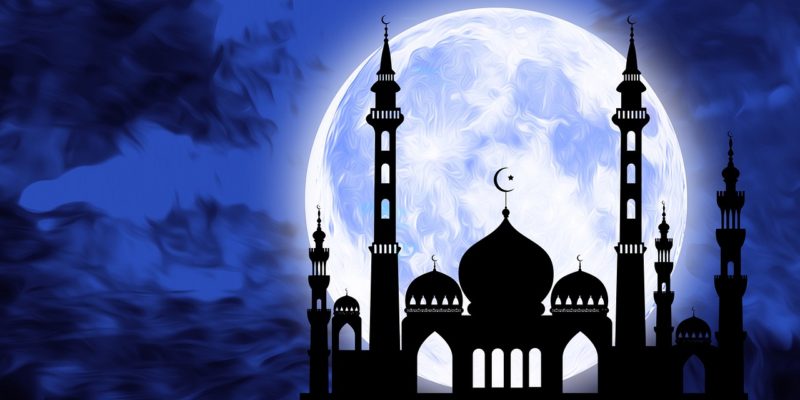
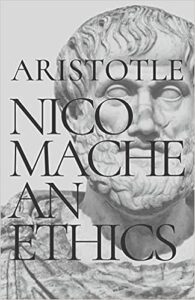


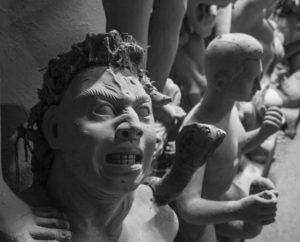
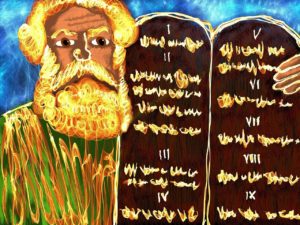

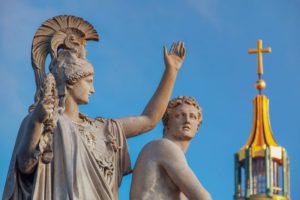

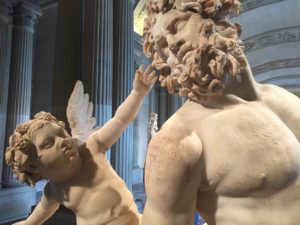
Comments